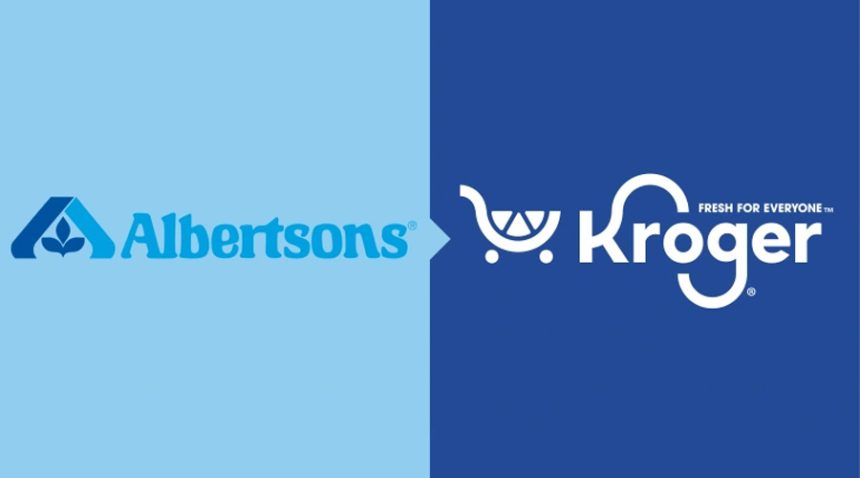Explore why this mega grocery merger fell apart and its implications for the retail industry
In October 2022, Kroger and Albertsons, two of the largest supermarket chains in the United States, announced a proposed merger valued at $24.6 billion. The deal aimed to create a grocery behemoth capable of competing with industry giants like Walmart and Amazon. However, by December 2024, the merger was officially terminated, with Albertsons filing a lawsuit against Kroger for breach of contract. This article delves into the factors that led to the failure of this mega grocery merger.
Regulatory Scrutiny and Antitrust Concerns
From the outset, the merger faced intense scrutiny from federal and state regulators concerned about its potential impact on market competition. The Federal Trade Commission (FTC), along with attorneys general from multiple states, argued that the merger would reduce competition, leading to higher prices for consumers and negatively affecting workers’ wages and benefits. In February 2024, the FTC filed a lawsuit to block the acquisition, emphasizing these antitrust concerns.
To address these concerns, Kroger and Albertsons proposed divesting 579 stores to C&S Wholesale Grocers, aiming to maintain competitive balance in the grocery market. However, this divestiture plan failed to satisfy regulators. Critics argued that C&S Wholesale lacked sufficient retail experience to effectively operate the acquired stores, raising fears that these locations might be sold off or closed, thereby diminishing competition.
Judicial Intervention
The regulatory challenges culminated in judicial intervention. In December 2024, U.S. District Judge Adrienne Nelson issued a preliminary injunction against the proposed merger, siding with the FTC’s position that the deal would risk reducing competition at the expense of both consumers and workers. Similarly, King County Superior Court Judge Marshall Ferguson in Washington state issued a permanent injunction, citing competition concerns specific to that region. These judicial decisions effectively halted the merger’s progress.
Internal Disputes and Allegations
Following the judicial blocks, Albertsons terminated the merger agreement and filed a lawsuit against Kroger in the Delaware Court of Chancery. Albertsons accused Kroger of willful breach of contract, alleging that Kroger failed to propose an adequate divestiture package and repeatedly ignored regulators’ concerns. Albertsons claimed that Kroger’s actions amounted to “buyer’s remorse,” suggesting that Kroger deliberately undermined the deal to avoid completion. Kroger, on the other hand, refuted these allegations, asserting that Albertsons breached the agreement and was attempting to deflect responsibility.
Market Dynamics and Competitive Pressures
Beyond regulatory and legal challenges, the merger faced skepticism regarding its potential impact on the grocery market. Analysts and consumer advocates expressed concerns that the consolidation would lead to store closures, reduced consumer choices, and higher prices. The grocery industry was already experiencing narrowing profit margins due to rising producer costs outpacing consumer price increases. For instance, in November 2024, the Consumer Price Index (CPI) for food increased by 1.6%, while the Producer Price Index (PPI) surged by 6.9%, indicating thinner margins for grocery retailers.
The merger’s failure also highlighted the challenges traditional grocery chains face in competing with larger retailers like Walmart, Costco, and Amazon. These competitors have more extensive resources and diversified business models, enabling them to exert significant pricing pressure in the market. The blocked merger may make it harder for grocery chains like Albertsons and Kroger to compete with these larger retailers.
Union Opposition and Employee Concerns
Labor unions, including the United Food and Commercial Workers International Union (UFCW) and the International Brotherhood of Teamsters, opposed the merger, citing threats to jobs, wages, and benefits for thousands of workers. They argued that the consolidation could lead to store closures and reduced employment opportunities, adversely affecting workers’ livelihoods.
The failure of the Kroger-Albertsons merger underscores the complexities involved in large-scale corporate consolidations, especially in essential sectors like grocery retail. Regulatory scrutiny, antitrust concerns, judicial interventions, internal disputes, market dynamics, and labor opposition collectively contributed to the collapse of the deal. As both companies move forward independently, they face the ongoing challenge of competing in a rapidly evolving retail landscape dominated by formidable players. The situation also serves as a precedent for future mergers and acquisitions, highlighting the necessity for thorough regulatory compliance, transparent negotiations, and consideration of broader market implications.





